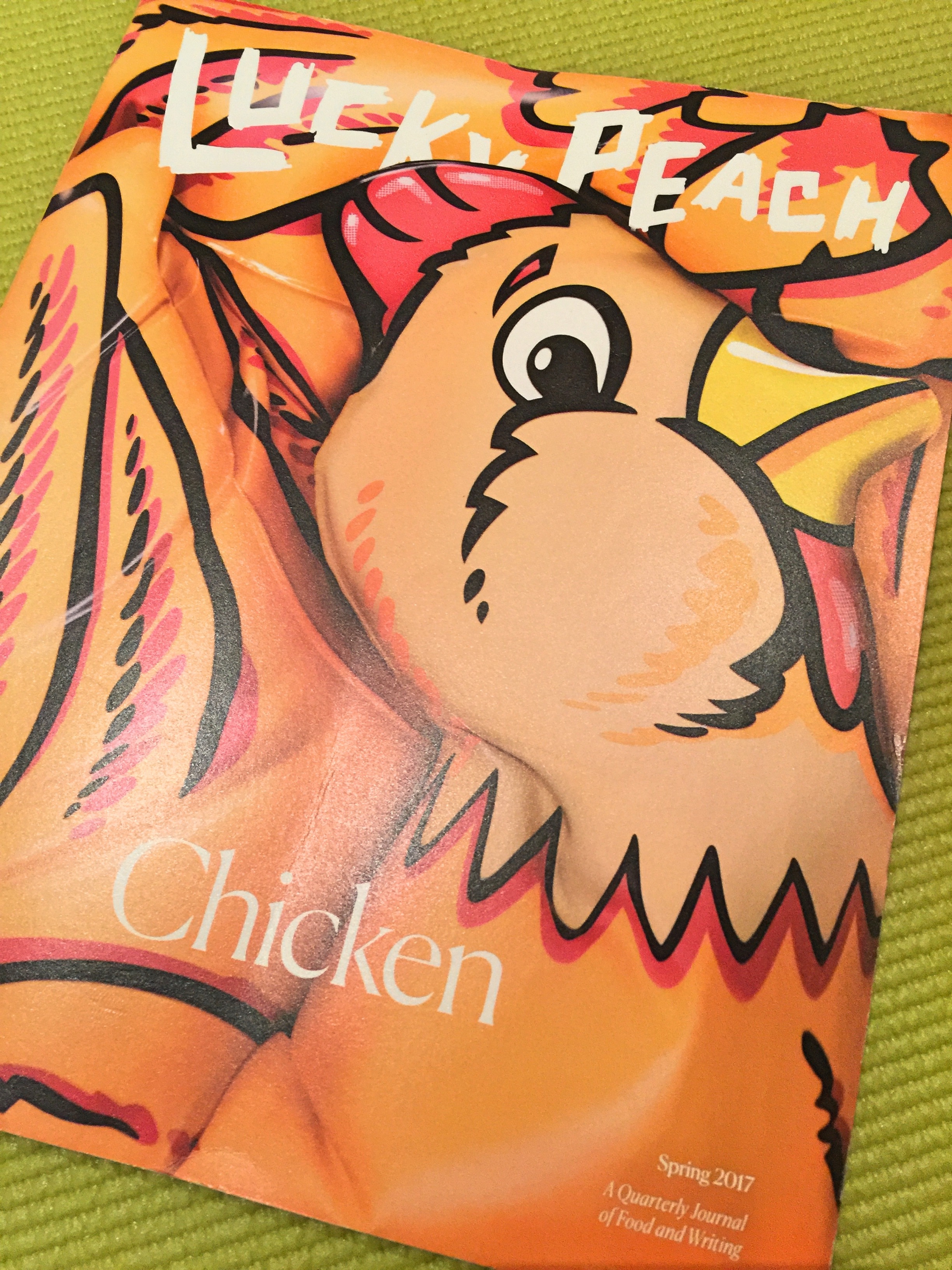Chris Nuttall-Smith has blessed us with an incredibly informative article in the latest Lucky Peach issue about the rising popularity (or a going-back-to movement) of slower-growth birds in the chicken industry (in particular in the US where the faster-and-bigger-is-better-mantra had become the norm).

The author sheds light on the complexities of growing chicken for meat (called broiler chickens) and how we all play our part in shaping the food industry. He addresses issues of animal welfare (faster-growing chickens are more prone to disease, and chickens which have more than doubled in weight since the 1980s have not been able to develop feet to support this excess, thus making them suffer), efficiency and profit (shorter growth time but bigger chicken equals less feed a.k.a. less crop land needed, but more meat leads to bigger profits), but also efficiency and less of a strain on the environment (shorter growth time and bigger chicken equals less feed a.k.a. less crop land and less water needed for the equal amount of meat, making the further destruction of wildlife habitat unnecessary, which is ultimately better for the environment).
But do we really need to produce such vast amounts of meat – especially considering how much of it still ends up being wasted? In this sense the consumer becomes key in influencing the food industry. What we do or don’t demand will impact what and how it will be produced. Do we demand birds grown in a more ethical way but without additional strain on the environment? I think for many of us the answer will be yes, but we also carry a responsibility.
If slow-growth birds are more ethically raised but slow-growth puts a strain on the environment, the logical conclusion to stem from this will be to eat less meat or at least be less wasteful and more open to eating all the parts of it, experimenting with recipes from cultures where this is done naturally. And while this may feel as if we have to restrain ourselves, it actually opens our eyes to try and see and enjoy everything that’s there, all the parts of a chicken and all the vegetables that exist that could be had instead of it or alongside it.
The big meat corporations are prone to stand against this development, but in the end they too will have to make changes to adapt. They are also likely to increase prices if consumption decreases. But does eating chicken only once a week instead of twice not seem like an acceptable reality? In fact it’s not something that we feel we should have to accept as a trade-off, rather it should be the natural consequence of getting our nutrition from other delicious resources.
There are food cultures which savour their vegetable dishes because they are simply delicious (the fact that these often arose due to a lack of meat does not change the way they are perceived and desired now) and if there’s a little meat stock in there for flavour, then that’s ok too (see my post on Korean side dish culture for a closer look at an almost meatless meal). Apparently slow-growing chicken tastes a lot better as well.
Sometimes it’s ok not to have everything available all the time. Doesn’t that make us appreciate and savour food even more? We can recognise food for how precious it is and that in itself makes it all the more delicious.
What do you think?
